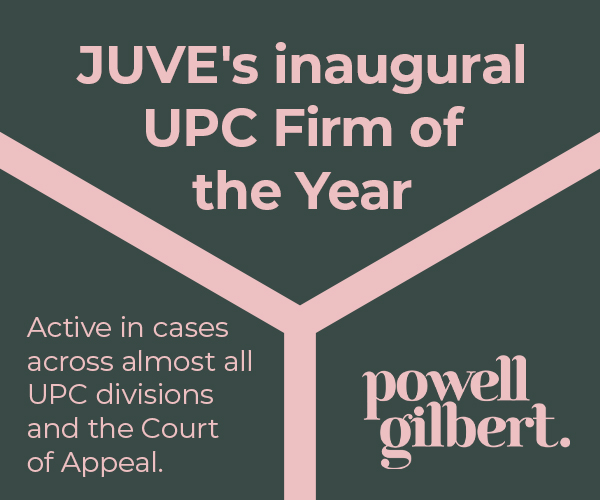UPC decisions in FujiFilm vs Kodak now extend to the UK
In the dispute between FujiFilm and Kodak over printing plates, the UPC has claimed jurisdiction over the UK part of the patents. Two rulings issued in early April for the UPC territory now extend to the UK.
21 July 2025 by Konstanze Richter
The current decision in Kodak vs FujiFilm is based on the CJEU ruling in BSH vs Electrolux (case ID: C-339/22). Previously, the Düsseldorf local division had affirmed the UPC’s jurisdiction for the UK in the dispute over another of FujiFilm’s patents.
Now, with the decision from the Mannheim local division, two judgements from early April also apply to the UK part of the patents (case IDs: UPC_CFI_365/2023 and UPC_CFI_359/2023).
Kodak challenges jurisdiction
At the Mannheim local division, FujiFilm sued Kodak’s German companies over EP 35 11 174 and EP 34 76 616. These protect methods for manufacturing planographic and lithographic printing plates. Fujifilm also filed suit at the Düsseldorf local division over infringement of EP 3 594 009. This case deals with the chemical components for the printing plates.
As the patents are also valid in the UK, the Japanese patent holder FujiFilm requested the court order the German subsidiaries of the US competitor to refrain from making or marketing their products not only in Germany but also the UK. However, Kodak challenged the UPC’s jurisdiction regarding the UK.
In January, the Düsseldorf local division revoked EP 009 and dismissed the infringement claim (case ID: UPC_CFI_355/2023). At the same time, the judges concluded that if the defendant is based in a UPC member state, the court has jurisdiction to hear the case regarding the UK part of the patent-in-suit.
Court separates case
In April, the Mannheim local division found EP 174 valid and infringed. Presiding judge Peter Tochtermann, judge Dirk Böttcher and Danish local division judge Peter Agergaard ordered Kodak to cease and desist and pay damages in Germany. The defendant appealed the decision.
Kodak fared better in the parallel proceedings for EP 616. Here, its counterclaim for revocation succeeded. The court revoked EP 616 due to lack of inventive step (case ID: UPC_CFI_359/2023). FujiFilm appealed.
The court separated the UK portion and the decision on its jurisdiction. In early February, the judge-rapporteur had informed the parties that the Mannheim local division would deal with the preliminary objection regarding jurisdiction in the main proceedings pending the opinion of the Advocate General in the CJEU proceedings in BSH vs Electrolux. The Advocate General issued the latter at the end of February.
Referring to the CJEU decision, presiding judge Peter Tochtermann, legally qualified judges Dirk Böttcher and Peter Agergaard together with technically qualified judge Erwin Wismeth concluded that the UPC has jurisdiction to decide upon the infringement of the UK part of a European Patent. Thus, the court extends the April rulings on both patents to the UK.
- Peter Tochtermann
- Dirk Böttcher
- Peter Agergaard
- Erwin Wismeth
Accordingly, it declared EP 174 to be infringed in the UK as well, while it saw no UK injunction necessary for EP 616 due to the successful revocation action at the UPC. However, the court also stated that the UPC does not have jurisdiction to revoke the validated national part of a European Patent in relation to the UK with erga omnes effect.
Invalidity defence allowed
The court also ruled that a defendant in a UPC infringement action relating to the UK part of a European bundle patent is allowed to raise an invalidity defence without being obliged to file a national action for revocation in the UK. According to the judges, the UPC will then assess the validity as a mere prerequisite for infringement. The outcome of the infringement action before the UPC has inter partes effect only.
As no national revocation proceedings are pending in the UK, the court saw neither reason to stay the infringement proceedings before the UPC, nor to make the decision conditional upon the validity of the UK part of the European patent.
Furthermore, according to the decision, the defendant does not have a legitimate interest in obtaining a declaration that the UK part of a European bundle patent is invalid, since such declaratory relief is not binding on the national authorities.
Hoyng ROKH vs Freshfields
FujiFilm relied on an international team from Hoyng ROKH Monegier. Düsseldorf partners Tobias Hahn led the current case with Paris-based partner Amandine Métier and Dutch senior associate Leon Dijkman.
- Tobias Hahn
- Amandine Métier
- Lars Baum
The team also included partners Lars Baum and Theo Blomme as well as associate Laurène Borey.
Freshfields lawyers defended Kodak. While Freshfields partner Wolrad Prinz zu Waldeck und Pyrmont and senior associate Eva Acker represented Kodak in Düsseldorf, partner Nina Bayerl and associates Elena Hennecke and Kilian Seidel acted for the company in the Mannheim proceedings.
- Wolrad Prinz zu Waldeck und Pyrmont
- Nina Bayerl
- Christopher Stothers
Carlotta Mannes and Anton Porsche from the German practice are also on the Freshfields team. A small London team led by partner Christopher Stothers played a role, with associate Katherine Dudman assisting.











